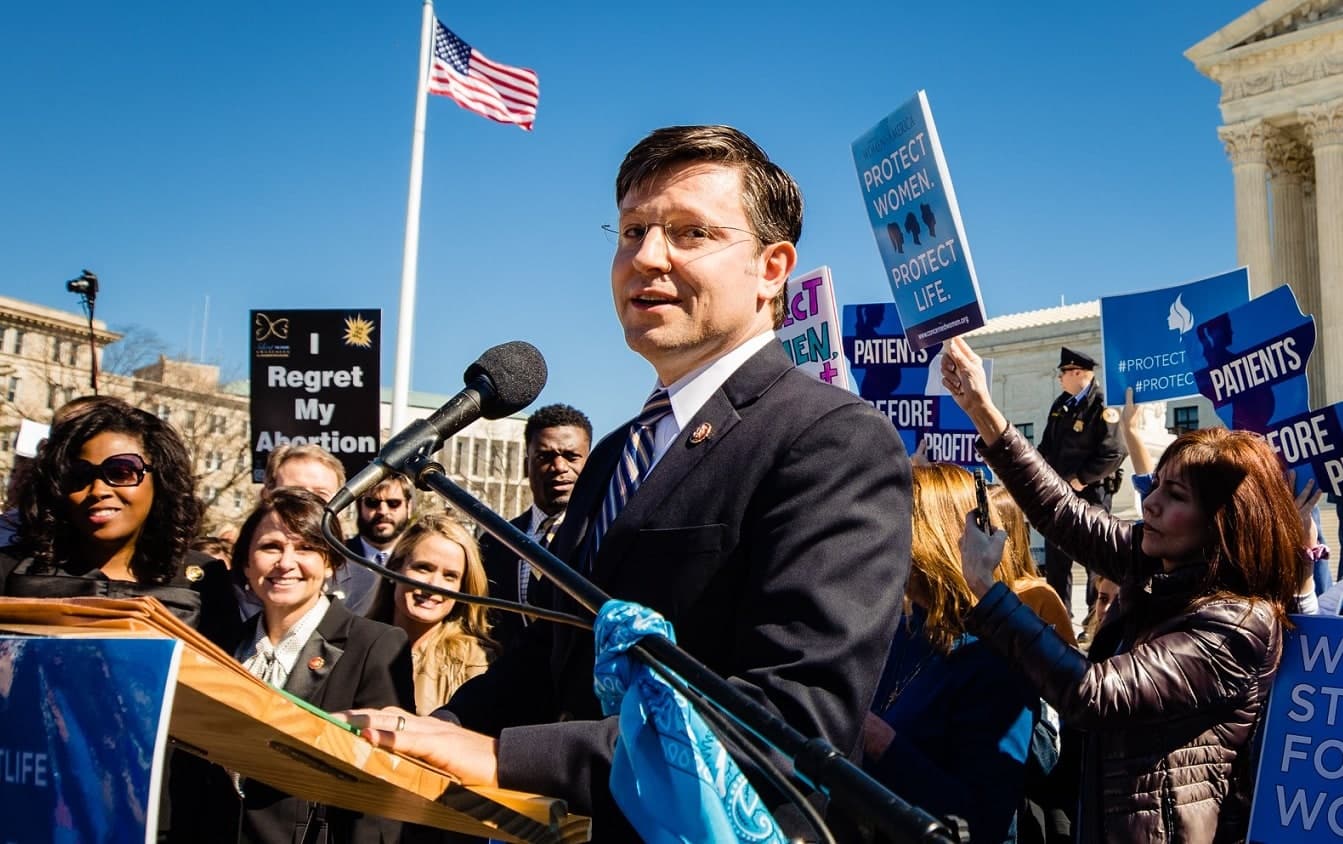By Will Hall, Message Executive Editor
WASHINGTON (LBM)—On March 4, Elizabeth Murrill, Louisiana’s solicitor general, argued the state’s position before the U.S. Supreme Court that the medical safety regulations outlined in Act 620, passed in 2014, protect a woman’s health and are not an undue burden or restriction.
At issue, in particular, is the law’s requirement that an abortionist obtain hospital admitting privileges to a facility within 30 miles of the abortion facility, in case of complications for the woman patient during or after an abortion. This element of the case, known as June Medical Services LLC v. Russo, was amplified while the legal challenge to the law made its way through the federal court process. In 2019 a woman who endured a botched abortion procedure at a Baton Rouge abortion facility experienced complications that forced her to have emergency surgery which resulted in a total hysterectomy, meaning the killed baby was the last child she could have birthed.
Despite this development, Julie Rikelman, attorney for the Shreveport abortion facility, Hope Medical Group for Women, owned by June Medical Services LLC, dismissed the concern about complications, arguing that such missteps are an exception in the abortion industry. She also said that requiring an abortionist to have admitting privileges within 30 miles effectively would close down the three abortion facilities in Louisiana because of the difficulty that abortionists face in obtaining such hospital privileges.
Murrill and then Jeffrey B. Wall, the U.S. deputy solicitor general who spoke as a “friend of the court” supporting Louisiana, both countered Rikelman’s points, alternately sharing that the claims of undue burden for the abortionists were untrue, and that the law protected the health of the woman patient whose safety rights should override any inconvenience for the abortion clinics.
Murrill said the admitting privileges clause “was justified by abundant evidence of life-threatening health and safety violations, malpractice, [and] noncompliance with professional licensing rules…” Testimony during the hearing confirmed that one of the six abortionists at the three abortion clinics in the state had punctured the uteruses of four patients and that June Medical Services’ license was suspended for regulatory violations.
Wall countered Rikelman’s contention that the abortionists were blocked in their attempts to secure admitting privileges, by saying any such attempts were “pretty modest” at best.
“Doe 2 [one of six abortionists represented in the lawsuit] did not apply to a hospital where he used to have privileges,” Wall testified, “and Doe 3 currently has privileges. Doe 5 got privileges at Touro Hospital in New Orleans and just needed to get a covering doctor in Baton Rouge.”
He also pointed out that Doe 6, located in New Orleans, declined to apply at Touro, even though Doe 5 was granted courtesy privileges there.
Meanwhile, Murrill had pointed out that Doe 3 had “hired a radiologist and an ophthalmologist to perform abortions at one point in time.”
Two of Louisiana’s legislative delegation in the U.S. Congress offered particularly insightful commentary about the Supreme Court case.
Rep. Mike Johnson, a member of the First Baptist Church in Bossier City, told Fox News that the case “really is legitimately about the health and safety of women” and reasoned that this concern overrides any interest of the abortion clinics.
“If they [abortion businesses] have difficulty finding qualified providers for this service that they provide, that is not the problem, or the concern of the state,” Johnson said. “The state’s concern is in the health and safety of women. And for the abortion industry to come and complain to the regulators and say, ‘Gee whiz, we can’t find qualified doctors who can obtain admitting privileges to a hospital,’ is not a sufficient reason to strike down a common-sense constitutional regulation.”
Johnson is chairman of the House Republican Study Committee. He helped lead an amicus brief in June Medical Services v. Russo in support of Louisiana on behalf of 207 members of Congress. Prior to his election to Congress, he represented the state in the Russo case. As an attorney in private practice 15 years earlier, he represented a woman who almost died from unsafe conditions in the Delta Women’s Clinic in Baton Rouge.
During a rally of support for the Louisiana law, Sen. John Kennedy, a member of the North Cross United Methodist Church in Madisonville, told the crowd he was “very proud” that Louisiana “is helping to lead our country’s pro-life movement” by pursuing this case before the Supreme Court.
“We cannot protect unborn children if we do not prioritize the health and well-being of their mothers,” Kennedy said. “The fact is that abortion providers routinely put the safety of women at risk.
“We want to make the health of children and the health of women a priority again,” he continued. The law that these nine justices will consider today, it is compassionate and is it common sense.”
Kennedy has submitted legislation, “The Pregnant Women and Health Safety Act,” to ensure women have access to immediate medical care, requiring abortion providers across the nation to have admitting privileges at a hospital located within 15 miles of where the abortion is performed. An added provision mandates the abortionist inform patients where they can receive follow-up care if any complication arises from an abortion.




